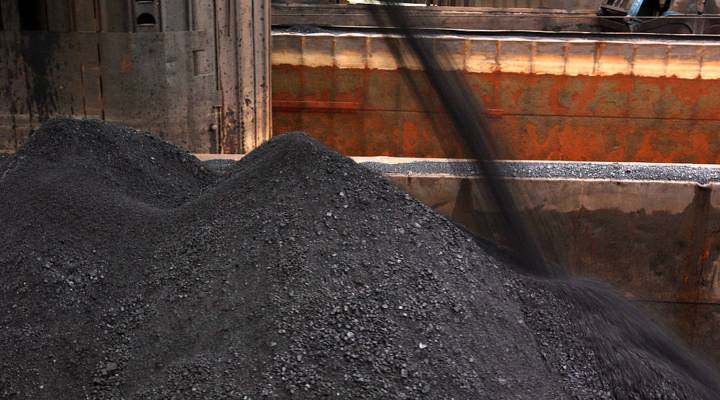
Bankruptcy looms for biggest coal-miner in U.S.

“We may not have sufficient liquidity to sustain operations,” the world’s largest private-sector coal company, Peabody Energy, wrote in filings this week.
That suggests Peabody Energy may be the next big coal company to go bankrupt and declare Chapter 11 to restructure its business. And that chapter is pretty full, as the coal mining business goes through what one analyst calls its “hour of reckoning.”
It’s not just a question of mines and jobs – on the chopping block in bankruptcy is money set aside for workers pension and for cleaning up environmental damage from mines.
Here’s the difference five years makes. In 2011, Peabody Energy’s stock flew over 1,000. And it bet big on mine purchases in Australia, said analyst Kristoffer Inton at Morningstar.
“They paid full price for these, and they used a lot of debt to do so,” said analyst Kristoffer Inton at Morningstar. “That’s basically the debt that they’re dealing with now. You buy something at the peak market, use a lot of debt and the market collapses.
Coal prices have fallen 60 percent. Peabody stock is down to $2 a share.
This commodity bust has withered demand. U.S. production could hit a 30-year low, says the Energy Department, which also thinks cheap natural gas will surpass coal for the first year ever.
Peter Marsters at the Rhodium Group said there’s a more hidden problem: a shrinking China market for the type of coal that makes steel. It’s more profitable.
“It’s just worth a lot more,” he said. “So any decline on that market will have a comparatively greater impact on a lot of these companies’ revenues.”
Many analysts think the companies in bankruptcy will shrink but not go away. But some of their financial obligations could.
In court, at least one big company has canceled health insurance payments to retirees. Another is trying to do something similar. Andrew Cosgrove is with Bloomberg Intelligence.
It’s kind of a back and forth where they say ‘Okay, we’ll chop part of the pension obligations off, and rework the labor contract,” said Andrew Cosgrove of Bloomberg Intelligence. “So you guys can keep jobs. The company can continue to run.’
Then there’s a question of cleaning up mines when they shut down. For now, most are still open during bankruptcy. The question is, who holds the bag if a company liquidates.

There’s a lot happening in the world. Through it all, Marketplace is here for you.
You rely on Marketplace to break down the world’s events and tell you how it affects you in a fact-based, approachable way. We rely on your financial support to keep making that possible.
Your donation today powers the independent journalism that you rely on. For just $5/month, you can help sustain Marketplace so we can keep reporting on the things that matter to you.


















